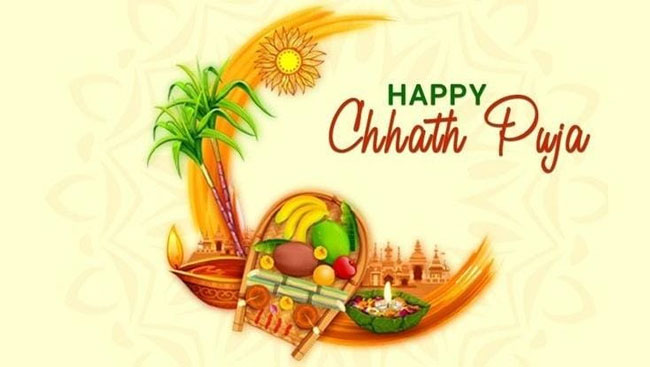 Chhath Puja is a deeply revered Hindu festival, celebrated primarily on the sixth day (Shashti) of the Shukla Paksha in the month of Kartik. It is a four-day festival devoted to worshiping the Sun God (Surya Dev) and Chhathi Maiya (Goddess Shashti) for health, prosperity, and the well-being of family members. Chhath Puja is especially popular in the Indian states of Bihar, Jharkhand, eastern Uttar Pradesh, and in the Terai region of Nepal.
Chhath Puja is a deeply revered Hindu festival, celebrated primarily on the sixth day (Shashti) of the Shukla Paksha in the month of Kartik. It is a four-day festival devoted to worshiping the Sun God (Surya Dev) and Chhathi Maiya (Goddess Shashti) for health, prosperity, and the well-being of family members. Chhath Puja is especially popular in the Indian states of Bihar, Jharkhand, eastern Uttar Pradesh, and in the Terai region of Nepal.
The Origin Story of Chhath Puja
The tradition of Chhath Puja is rooted in an ancient legend involving King Priyavrat. According to the story, King Priyavrat and his wife were deeply distressed as they had no children. Despite numerous efforts and sacrifices, they remained childless. Sage Kashyapa then advised them to perform a special ritual known as putreshti yajna to obtain a child. After this ritual, they were blessed with a son, but the joy was short-lived as the newborn died shortly after birth.
Devastated, the king and queen decided to observe strict penance and invoked the blessings of Goddess Shashti (also known as Chhathi Maiya). They undertook a fast and performed the necessary rituals with unwavering faith. Pleased by their devotion, Goddess Shashti restored their child to life. From this incident, the tradition of worshiping Chhathi Maiya and observing Chhath Puja is believed to have started.
Chhath Puja in the Ramayana and Mahabharata
Chhath Puja is also mentioned in Hindu epics like the Ramayana and Mahabharata. It is said that after returning to Ayodhya, Lord Rama and Sita observed a fast and offered prayers to the Sun God on the Shashti of Kartik month, which is one of the origins of this festival. Similarly, in the Mahabharata, there is a reference to Kunti and Draupadi performing a similar sun worship ritual, which granted them strength and fulfilled their desires.
Significance of Chhath Puja
Chhath Puja is considered highly auspicious and is marked by the offering of arghya (water) to the setting and rising sun. Worshipers pray to Surya Dev and Chhathi Maiya for the welfare of their family, health, and prosperity. The rituals, which include standing in rivers or water bodies and observing strict fasts, reflect deep devotion and spiritual discipline, with Chhath being a symbol of health, wealth, and happiness.




